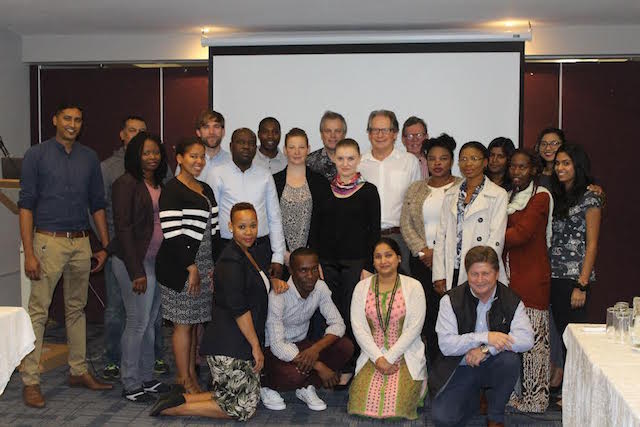The Durban University of Technology’s Institute for Water and Waste Water Technology hosted the National Research Foundation (NRF) Swedish Foundation for International Cooperation in Research and Higher Education (STINT) Workshop at the Ritson Campus Hotel School from 15 to 21 October 2016.
The workshop was a five day event aimed at finding ways to prevent and curb further cases of water-borne diseases such as Protozoan Parasites (a single-celled organism that can move and feeds on organic compounds of nitrogen and carbon), cryptosporidium (a water-borne protozoan parasite that contaminates drinking water supplies, causing intestinal infections in human beings and domestic animals) and Gardia (commonly associated with bloating, flatulence and weight loss, which can have severe clinical course in young, sick or immunocompromised hosts).
The workshop was also a platform to promote the importance of thorough water sanitation globally, promote higher education and form a stronger relationship between Sweden and South Africa.
Professor Thor Axel Stenstrom, the South African Research Chairs Initiative (SARChl) Chair, said DUT would like to open study opportunities for students abroad. “We would like to have well trained South Africans that understand these things, therefore we will select master’s degree candidates from South Africa who will go up to Sweden to take up courses, and also have candidates from Sweden come down to South Africa to study courses as well,” he said.
A contentious issue of discussion at the workshop also evolved around Cryptosporidium, which is a microscopic parasite that causes the diarrheal disease cryptosporidiosis and Gardia; the two leading causes of diarrhoea in South Africa.
According to the overview from researchers at the workshop, it was found that these parasites are water and food borne and are likely to survive in food and water. People who consume raw or under cooked food are more likely to consume food with such parasites, and people who consume water mostly from lakes, dams, rivers which have been contaminated with faeces, are also at risk of contracting these infections.
Also brought to the attention of researchers at the workshop were the issues such as the impact and risk assessment of surface and waste water of crop irrigation as well as the influence of different faecal sources on the microbial water quality in a drinking water source in Sweden.
All-in-all, the general consensus gathered from the workshop was for South Africa and Sweden to work closely together going forward in collaborating to find solutions to issues pertaining to water diseases.
– Phumeza Msongelwa
Pictured: Attendees of the NRF STINT Workshop.


